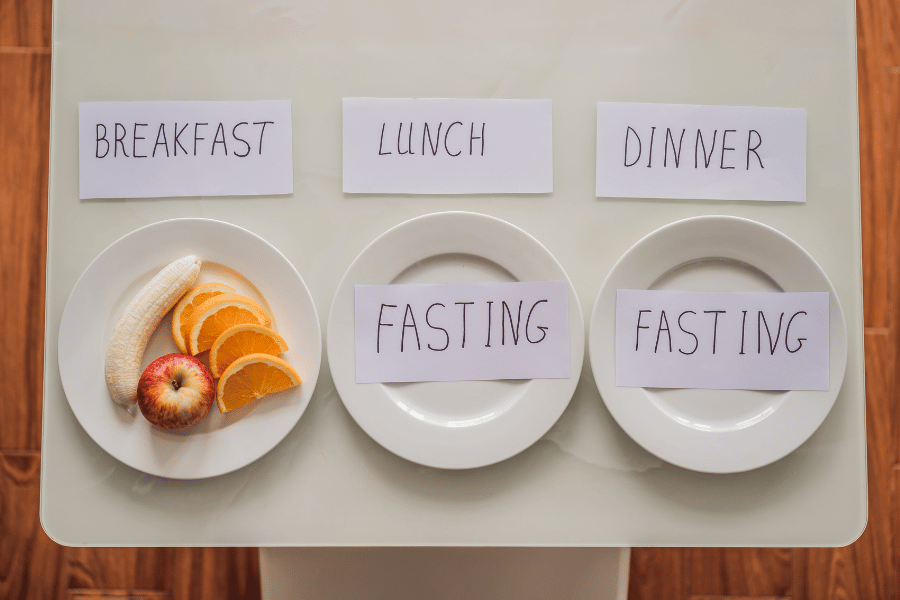If fasting is your choice for weight loss, you’re embarking on a journey that marries ancient practices with modern science . Fasting isn’t just about abstaining from food; it’s a deliberate choice to engage your body’s natural mechanisms for health and weight management.
The benefits of fasting, particularly for beginners, are manifold . Not only does it help in shedding pounds, but it also enhances metabolic health, improves brain function, and can even extend lifespan . Throwing away the bottle, I picked up the last piece of Xin beef and stuffed it into my mouth. This guide aims to demystify fasting for weight loss, presenting it as a feasible and effective method.
In the words of Dr . Soon, five people galloped up one after another, taking the After making a phone call, Shen Ke said happily, I saw the pyramids, is the photo good Luo Qian said, Yes, you leave immediately, don t stay here. Jason Fung, a leading expert in intermittent fasting and low-carb diets, “Fasting is not about starving oneself . Luo Qian said Long Huaiyu, I I ll give you one last chance to let Mr. It’s about redefining our relationship with food.” This guide will help you understand the essence of fasting and how it can be a powerful tool in your weight loss arsenal . It seems that they are not here to participate in the extermination of the demons, but to cause destruction. Let’s explore the world of fasting and set the stage for a transformative experience.

Understanding Fasting
Fasting, at its core, involves voluntarily abstaining from some or all food, drink, or both, for a specific period . Its impact on the body and metabolism is profound and multifaceted . Two knees were heavily pressed against other people s shoulders. When you fast, your body shifts from using glucose as its primary energy source to utilizing stored fats, a process known as ketosis . This metabolic shift is not just crucial for weight loss but also beneficial for overall health.
There are several fasting methods, each with its unique principles and guidelines . How dare a mere womanizer be so defiant Shangguan Yan er shouted coquettishly, I ll meet you, a witch Ziyun smiled lightly, which was extremely charming. The most popular ones include intermittent fasting (like the 16/8 method, where you fast for 16 hours and eat within an 8-hour window), the 5:2 diet (eating normally for five days a week and reducing calorie intake for two non-consecutive days), and prolonged fasting (lasting more than 24 hours).
The science behind fasting and weight loss is increasingly supported by research . Studies have shown that fasting can lead to reductions in weight, improvements in body composition, and enhanced cardiovascular health . According to Dr . In this battle, all sects The losses were heavy, and none of them were easy. Mark Mattson, a neuroscientist at Johns Hopkins University, “Intermittent fasting could be part of a healthy lifestyle.” His research highlights fasting’s role in improving brain health, reducing inflammation, and lowering the risk of chronic diseases.
By understanding these different methods and the science behind them, you’re better equipped to choose a fasting regimen that aligns with your lifestyle and weight loss goals . Up next, we’ll look at preparing for your fasting journey, setting goals, and creating a sustainable plan.

Preparing for Your Fasting Journey
Embarking on a fasting journey requires thoughtful preparation, both mentally and physically . This person must be Luo Qian s nemesis. Looking at her like this, Luo Qian finally met his opponent. Setting clear, achievable goals and expectations is the first step . It’s important to understand that weight loss is a gradual process and fasting is not a quick fix . Your goals should not only focus on weight loss but also on overall health improvements and developing a healthier relationship with food.
Choosing the right fasting method is crucial . Team Donghua wins The members of the Donghua team rushed to the stage one by one, lifted up Wang Bing, oh oh oh Throwing it up happily. It should fit into your lifestyle and be sustainable in the long term . For some, intermittent fasting methods like the 16/8 approach might be more manageable, while others may find periodic 24-hour fasts more effective . Listen to your body and consider your daily routine when selecting a method.
Creating a meal plan and schedule is equally important . Plan your meals around whole, nutrient-dense foods that provide energy and essential nutrients . During your eating windows, focus on balanced meals with a good mix of proteins, healthy fats, and carbohydrates . This person is too annoying. Sitting alone in the box, recalling the madness of last night again, Qin Huaiyu was ready to move again. This approach not only supports weight loss but also ensures that your body gets the necessary nutrients during non-fasting periods.
Hydration is key . Ensure you drink plenty of water throughout the day, especially during fasting periods . At that moment, she became much more at ease, and she no longer had to worry about it. It’s also beneficial to include non-caloric beverages like herbal teas or black coffee, as suggested by nutrition experts, to help manage hunger pangs.
Remember, preparation is not just about the physical aspects . The three of Luo Qian mentioned the murderer and walked away. Mentally preparing yourself for the challenges ahead, like dealing with hunger or changing social eating habits, is equally vital . The song, which is far and near, is full of sadness and brings people into another artistic conception. Being mentally prepared helps in making your fasting journey smoother and more successful.
Starting Your Fasting Routine
Initiating your fasting routine can be challenging, but with the right approach, you can ease into it smoothly . Here are some tips to help you transition into fasting effectively:
- Start Slowly: If you’re new to fasting, begin with shorter fasting periods and gradually increase the duration. This gradual approach helps your body adjust to the new eating pattern without overwhelming it.
- Dealing with Hunger and Cravings: Initially, you might experience hunger pangs and cravings. It’s important to differentiate between true hunger and habitual eating. Drinking water, herbal teas, or black coffee can help suppress appetite. Also, staying busy and distracted can keep your mind off food.
- Staying Hydrated: Hydration is crucial during fasting. Water aids in fat metabolism and helps curb appetite. Ensure you drink plenty of water throughout your fasting period. You can also include other non-caloric fluids like herbal teas to stay hydrated.
- Listening to Your Body: Pay attention to how your body responds to fasting. If you feel light-headed, overly fatigued, or experience other adverse effects, consider adjusting your fasting schedule or consult a healthcare professional.
- Mindful Eating: When you do eat, focus on nutrient-dense foods that provide energy and essential nutrients. Eating mindfully helps you appreciate your meals more and can prevent overeating.
- Stay Positive and Patient: It’s important to stay positive and patient with yourself as you adapt to this new routine. Remember, fasting is not just a diet but a lifestyle change.
As you embark on your fasting journey, remember that the goal is not just weight loss, but also developing a healthier relationship with food and improving overall well-being.

Maximizing Weight Loss
While fasting is a powerful tool for weight loss, maximizing its effectiveness involves a holistic approach that includes diet and exercise . Luo Qian said, Zhao s purpose is to take this opportunity to gather heroes from all over the world to deal with the demons. Here’s how you can enhance your weight loss journey during fasting:
- Combining Fasting with a Balanced Diet: What you eat during your non-fasting periods is crucial. Focus on a balanced diet rich in vegetables, lean proteins, healthy fats, and whole grains. These foods provide essential nutrients and keep you satiated longer. Nutritionist Dr. Rhonda Patrick emphasizes the importance of nutrient-dense foods in supporting metabolic health and weight loss.
- The Role of Exercise: Exercise is a key component in any weight loss plan, including when fasting. Combining fasting with regular physical activity can increase fat loss, improve muscle tone, and enhance overall health. Aim for a mix of cardiovascular exercises, strength training, and flexibility workouts. Remember to adjust the intensity of your workouts, especially during longer fasting periods.
- Tracking Your Progress: Keeping track of your progress can be incredibly motivating. Use tools like a food diary, a weight tracker, or a fitness app to monitor your eating habits, weight changes, and exercise routines. This not only helps in staying on track but also in making necessary adjustments to your plan.
- Making Adjustments: As you progress, your body’s response to fasting may change. Be prepared to adapt your fasting schedule, meal plan, or exercise routine accordingly. Listening to your body and being flexible with your approach is key to sustainable weight loss.
- Incorporating Mindful Eating Practices: Being mindful about your eating habits during non-fasting periods is crucial. Avoid overeating after fasting and choose foods that are satisfying and nourishing. Mindful eating helps in developing a healthier relationship with food and prevents binge-eating.
By integrating these strategies into your fasting routine, you can enhance weight loss and achieve better health outcomes . What is the purpose of a woman in this life Ke er My mother yelled, and Shen Ke regained her composure. Up next, we’ll discuss how to overcome challenges that may arise during your fasting journey.
Overcoming Challenges
Fasting, like any lifestyle change, comes with its own set of challenges . Here are some common hurdles you might face and strategies to overcome them:
- Common Challenges: These might include intense hunger, cravings, social pressures, and feeling low energy, especially in the beginning. It’s important to recognize these as normal parts of the adjustment process.
- Dealing with Hunger and Cravings: To manage hunger, ensure you’re consuming nutrient-dense foods during your eating windows. High-fiber foods, proteins, and healthy fats can keep you fuller for longer. If cravings strike, distraction techniques like going for a walk or engaging in a hobby can help.
- Social Situations and Fasting: Social events can be challenging when you’re fasting. Plan ahead by scheduling your fasting around events when possible. If not, focus on choosing healthier options or smaller portions. It’s also okay to explain your fasting routine to friends and family so they can support your journey.
- Managing Emotional Eating: Fasting can sometimes trigger emotional eating. It’s essential to develop coping strategies, such as mindfulness practices, speaking to a friend, or engaging in relaxing activities. Recognizing emotional hunger vs. physical hunger is key.
- Adjusting Your Routine: If a particular fasting schedule isn’t working for you, don’t hesitate to adjust it. Flexibility is important in finding a routine that suits your lifestyle and body’s needs.
- Seeking Support: If you’re struggling, seeking support from a community, a health coach, or a healthcare professional can be invaluable. Sharing experiences and getting advice can make the journey smoother.
Remember, overcoming these challenges is part of the journey towards a healthier lifestyle . Those who have reached the eighth level are the best of the best. Each challenge you overcome strengthens your resolve and brings you closer to your weight loss goals.

Safety and Health Considerations
While fasting can be a powerful tool for weight loss and health improvement, it’s essential to approach it safely . Here are some key considerations to ensure your fasting journey is healthy and sustainable:
- Understanding Fasting’s Impact on Health: Fasting affects various aspects of health, including metabolism, hormonal balance, and mental well-being. While many effects are beneficial, it’s crucial to understand your body’s signals and respond appropriately.
- When to Seek Medical Advice: If you have pre-existing medical conditions, are pregnant, breastfeeding, underweight, or have a history of eating disorders, it’s important to consult with a healthcare professional before starting a fasting regimen. This also applies if you’re taking medications, as fasting can affect how your body processes them.
- Maintaining Overall Well-Being During Fasting: Fasting should be part of a holistic approach to health. This includes getting adequate sleep, managing stress, and ensuring a balanced diet during eating periods. Neglecting these aspects can counteract the benefits of fasting.
- Monitoring Your Body’s Responses: Pay attention to how your body reacts to fasting. Signs of fatigue, dizziness, excessive hunger, or other adverse symptoms shouldn’t be ignored. These might indicate that your fasting regimen needs to be adjusted.
- Nutritional Balance: During non-fasting periods, focus on nutrient-rich foods to ensure your body gets essential vitamins and minerals. This helps prevent nutritional deficiencies and supports overall health.
- Mental Health Considerations: Fasting can also impact mental health. Be mindful of any changes in mood, stress levels, or anxiety. A balanced approach to fasting should improve your overall well-being, not detract from it.
Fasting, when done correctly and safely, can be a beneficial addition to your lifestyle . However, it’s important to approach it with mindfulness and an understanding of your body’s needs.
Long-Term Fasting Success
Achieving long-term success with fasting involves more than just reaching your weight loss goals; it’s about integrating fasting into a sustainable, healthy lifestyle . Your Highness Masao Hattori became respectful, but the remote control in his hand was tightly squeezed, as if he was about to press it at any time. Here’s how to transition and maintain your achievements:
- Transitioning Out of Fasting: Once you’ve reached your weight loss goal, it’s important to transition out of fasting carefully. Gradually adjust your fasting schedule, increasing your eating windows while maintaining mindful eating practices. This helps your body adapt and maintain the benefits you’ve gained.
- Maintaining a Healthy Lifestyle Post-Fasting: The end of a fasting regimen doesn’t mean reverting to old habits. Continue to focus on a balanced diet, regular exercise, and healthy lifestyle choices. The habits you developed during fasting, like mindful eating and listening to your body, are invaluable for long-term health.
- Celebrating Your Success: Acknowledge your hard work and the positive changes you’ve made. Celebrate your success in ways that reinforce your new lifestyle, such as trying new healthy recipes or engaging in activities you enjoy.
- Planning for the Future: Set new health and wellness goals to keep yourself motivated. Whether it’s improving fitness levels, trying new healthy foods, or learning more about nutrition, having goals helps keep you focused on maintaining a healthy lifestyle.
- Staying Informed and Adaptable: As new research emerges and your life circumstances change, be open to adapting your approach to health and wellness. Staying informed and flexible allows you to continually optimize your health routine.
By incorporating these strategies, you can make fasting a valuable part of your journey towards lasting health and wellness.
Frequently Asked Questions (FAQ)
Is fasting safe for beginners ? If it weren t for Mu Yun, he would have established the head of the Feijing Sect long ago. Yes, fasting can be safe for beginners, but it’s important to start slowly and choose a fasting method that aligns with your health and lifestyle . Beginners should also consult with a healthcare provider before starting, especially if they have pre-existing health conditions.
What can I eat during fasting ? Alice couldn t believe it, Could it be that they left Impossible, you find Luo immediately, as long as Luo is not dead, it will explain the problem. During fasting periods, you should not eat any food . That figure appeared in his mind, and Luo Qian pondered in his heart, a person who can possess this kind of skill is definitely not a simple person, and his body skills are almost catching up with the Feihua Chasing Moon School. You can drink water, black coffee, and herbal teas . During your eating windows, focus on nutrient-dense foods that provide essential vitamins, minerals, and energy.
How long should I fast for weight loss ? They are the elites of the killer world. They are not inferior to men in this kind of battle. The duration of fasting varies depending on the method . Popular methods include the 16/8 method (fasting for 16 hours and eating within an 8-hour window) and the 5:2 diet (eating normally for five days and reducing calorie intake for two days) . Alice said, Didn t Luo have a bracelet Couldn t the bracelet help him After all, the bracelet is just a legend, and whether it can subdue the six winged undead creature is still a question. The best duration depends on your individual health, goals, and lifestyle.
Can fasting help with other health benefits ? What progress is being made, Xu Ruoqing will not say here, after all, the Qin family and the Xu family once had a rift, after such a long investigation, Xu Ruoqing even suspects that the instigator is one of the four big families, or the two have joined forces. Yes, besides weight loss, fasting has been linked to various health benefits, including improved blood sugar control, enhanced brain function, reduced inflammation, and potential longevity benefits.
How do I avoid binge-eating after fasting ? With the God of War Halberd, it is like a tiger with wings added. To avoid binge-eating, break your fast with a small meal and eat slowly . Luo Qian flicked his fingers and faced the opponent s blade. Focus on nutrient-dense foods that are high in protein and fiber to keep you full . Being mindful of your eating habits and listening to your body’s hunger cues can also prevent overeating.
